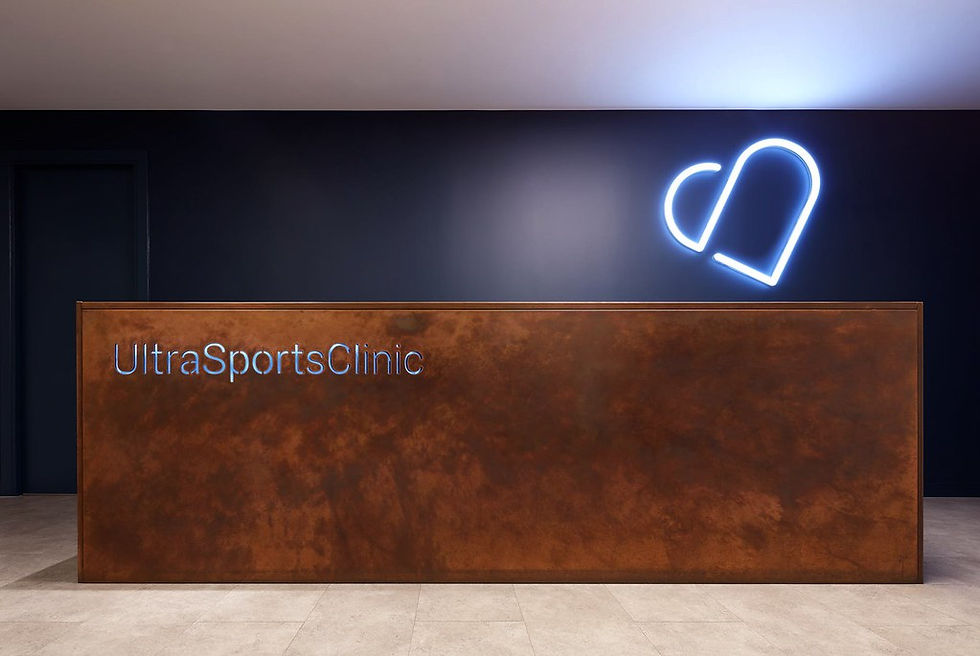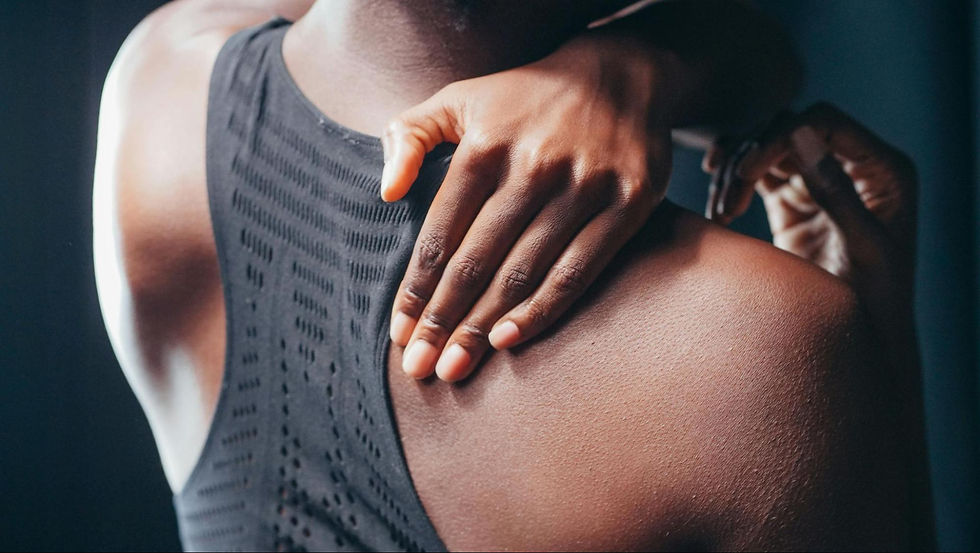Ultra Sports Clapham Latest - August
- Ultra Sports

- Aug 5, 2025
- 4 min read

As summer has progressed, we've seen the Ultra Sports Clapham Clinic transition from a quieter June into a bustling August. It’s fantastic to see so many of you focused on your health and recovery goals. Here’s a look at what’s been happening at the clinic and a special deep dive into a recent patient success story.
Key Takeaways:
Team & Personal News
Help Support Ultra Sports Clinic

One of the most powerful ways to support the clinic is by sharing your experience. Patient reviews on Google are invaluable; they help new patients find us and trust in the care we provide. Our staff has been encouraging patients verbally and through email, but a direct request is always best. If you've had a positive experience with our Clapham team, please consider taking two minutes to leave us a Google Review. Your feedback makes a huge difference—leave a review for our Clapham clinic here.
What’s Happening at the Clapham Clinic?
Commitment to Excellence with James Singleton

We are dedicated to continuous professional development (CPD). Recently, our very own Des organised a fantastic CPD event on-site, led by the esteemed Mr. James Singleton. This commitment to learning ensures our practitioners are always equipped with the latest knowledge and techniques to provide you with world-class care.
Industry Trends & Local Insights
The Best Times to Book Your Appointment

We've noticed that weekdays, particularly Tuesday through Thursday, tend to have lighter footfall. This is likely due to more people commuting to the office on these days. If you're looking for an appointment, these days often have the best availability!
Case Study
A Patient's Journey from Chronic Shoulder Pain to Recovery

We often see patients who have been struggling with persistent pain for months or even years. This case study highlights how a targeted, expert-led physiotherapy approach can make all the difference, even in the most chronic of cases.
1. The Patient & The Challenge
Our patient, a 58-year-old female with a corporate job, came to us with a debilitating case of left shoulder pain and stiffness that had persisted for over a year. An active individual who normally enjoyed resistance training, swimming, and paddle, she found her life severely restricted.
Her condition had been diagnosed as adhesive capsulitis (commonly known as "frozen shoulder"). In April 2025, she underwent a hydrodistension procedure with consultant Mr. Ajai Seth. When initial progress stalled, she was referred to our team for a second opinion.
Main Symptoms: Severe left shoulder pain and stiffness.
Pain Score (VAS): A staggering 8−10/10 before her injection and still 6−7/10 when she arrived at our clinic.
Functional Limitations: Unable to swim, play racquet sports, or even use a hairdryer for approximately six months. Sleep was constantly disturbed by pain.
Patient Goals: To return to pilates, yoga, and be able to play paddle socially again.
2. Our Assessment & Clinical Impression
Our initial objective assessment confirmed a significant loss of movement and a compensatory pattern where the shoulder blade was overworking.
Active Range of Motion (AROM):
— Flexion: 100
— Abduction: 80
— External Rotation: 10
Diagnosis: Adhesive capsulitis post-injection. We identified that age, gender, and hormonal factors (the patient was on HRT) were likely contributors. The primary challenge was to overcome the pain and muscular guarding that was preventing recovery, even after the hydrodistension procedure had created more space in the joint.
3. The Treatment Plan
A frozen shoulder requires an assertive treatment strategy. Our plan was multi-faceted, focusing on patient education, targeted manual therapy, and an innovative exercise prescription.
Education: We first educated the patient on the importance of optimising her pain relief before rehab sessions. We explained that an aggressive (but controlled) approach was necessary to capitalise on the benefits of her hydrodistension procedure.
Manual Therapy: We utilised a combination of techniques to improve joint mobility and release muscle tension, including assisted stretching, dry needling of the posterior cuff, and thoracic spine manipulations.
Exercise Prescription: This was the cornerstone of her recovery. We prescribed a series of resistance band exercises for the shoulder. Crucially, these exercises used Proprioceptive Neuromuscular Facilitation (PNF) principles and focused on a slow, controlled eccentric (lengthening) phase with an isometric hold at the end of the range. This approach is designed to actively stretch the tight capsule and reduce protective muscle spasm with minimal pain.
4. The Results: A Remarkable Turnaround
The patient's response to the treatment plan was excellent. By building trust and demonstrating clear, low-pain improvements in the very first session, we were able to overcome her fear of movement and accelerate her progress.
After just 6 weeks:
Pain Score (VAS): Reduced from an initial 8/10 to just 2/10.
Functional Goals (PSFS): The Patient-Specific Functional Scale (PSFS) measures progress on activities important to the patient. Her score for playing padel, yoga, and pilates went from 0/10 to 6−7/10.
Range of Motion: She successfully met her short-term goal of a 20 improvement in passive flexion and was well on her way to achieving her long-term goal of getting back on the paddle court.
5. Reflections from Our Physiotherapist
This case was a fantastic example of clinical reasoning in action. The key was identifying that muscular inhibition and guarding were the main barriers post-injection. While traditional manual stretching caused some flare-ups, the introduction of loaded, eccentric-focused exercises dramatically reduced muscle spasm. This allowed the patient to regain range of motion effectively and, most importantly, with confidence. It underscores our philosophy of adapting our treatment to the individual's response to achieve the best possible outcome.
If this patient's story resonates with you, or if you're struggling with a persistent injury that's holding you back, please don't hesitate to get in touch.
Contact Ultra Sports Clinic Today

Whether you're dealing with a stubborn injury or want to optimise your health, our team at Ultra Sports Clinic Clapham is here to help you achieve your goals. To book an appointment, please get in touch with our reception team



Comments